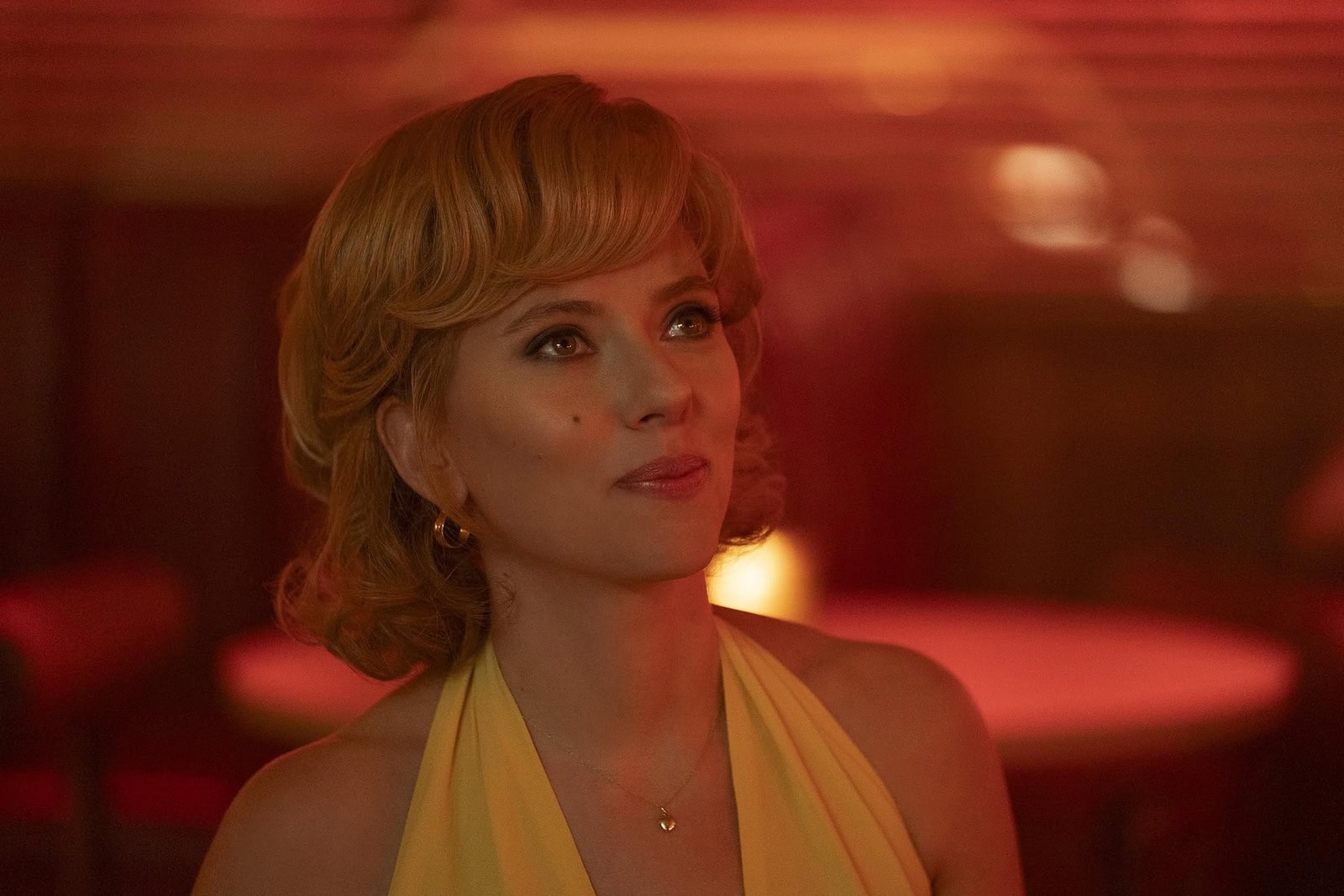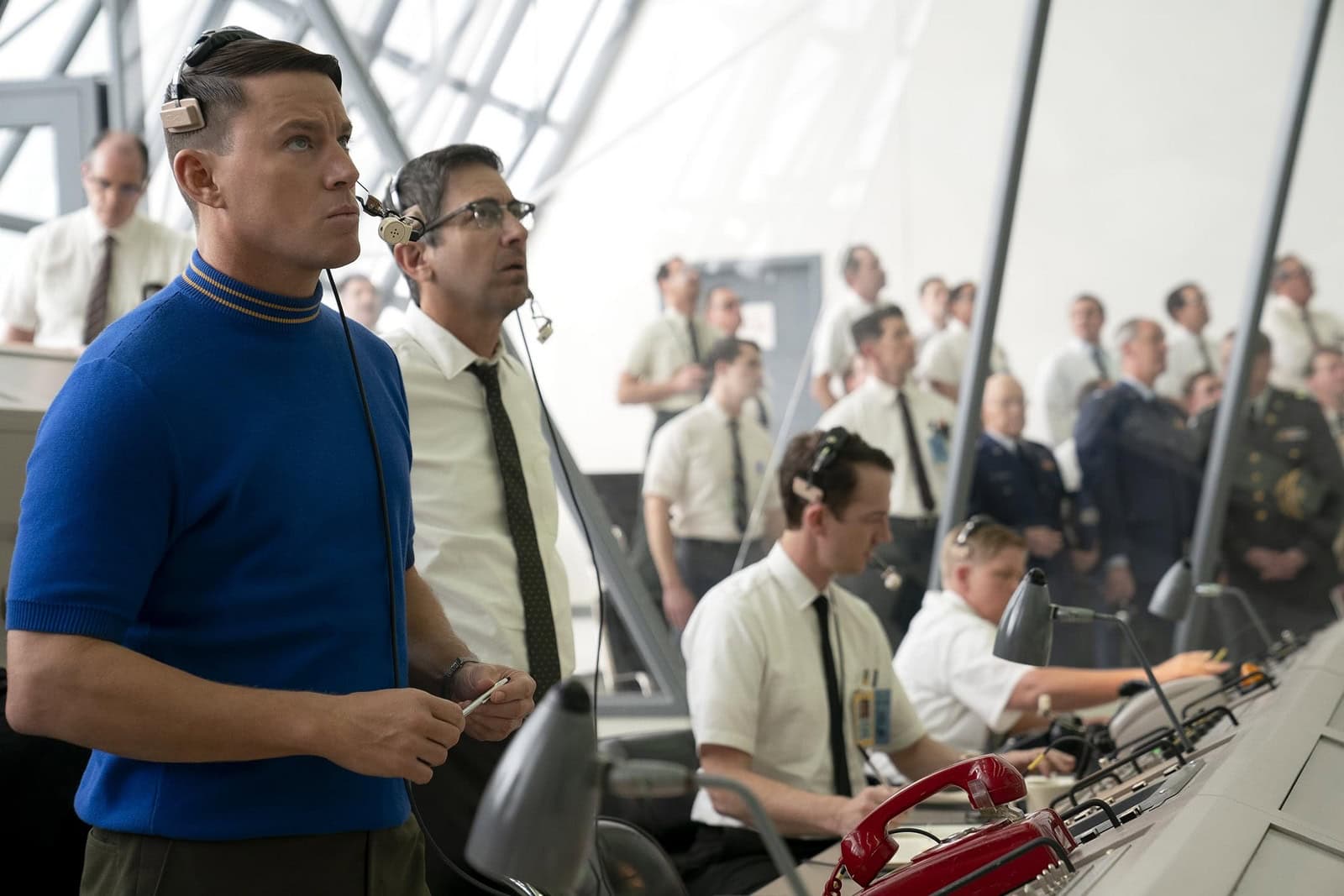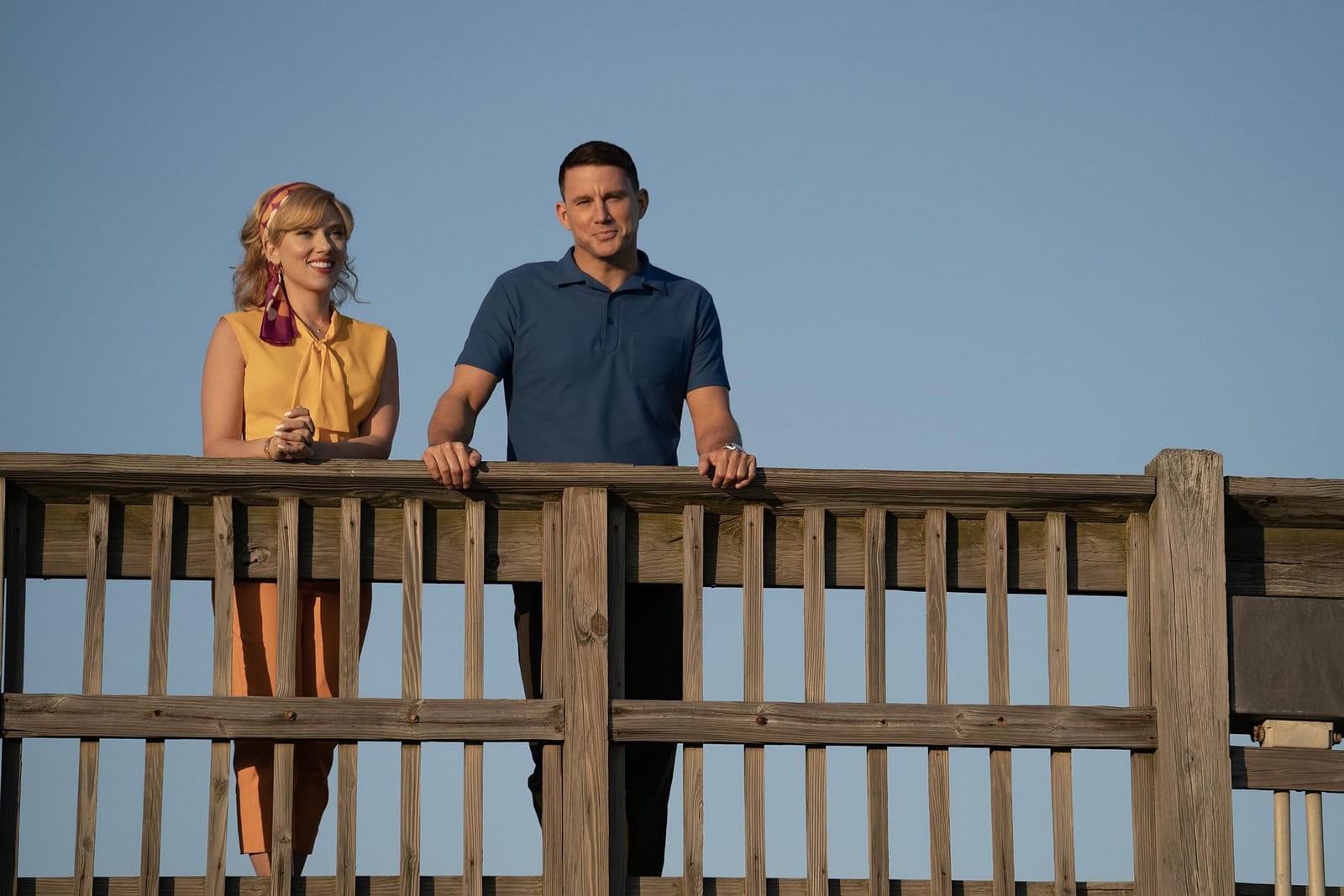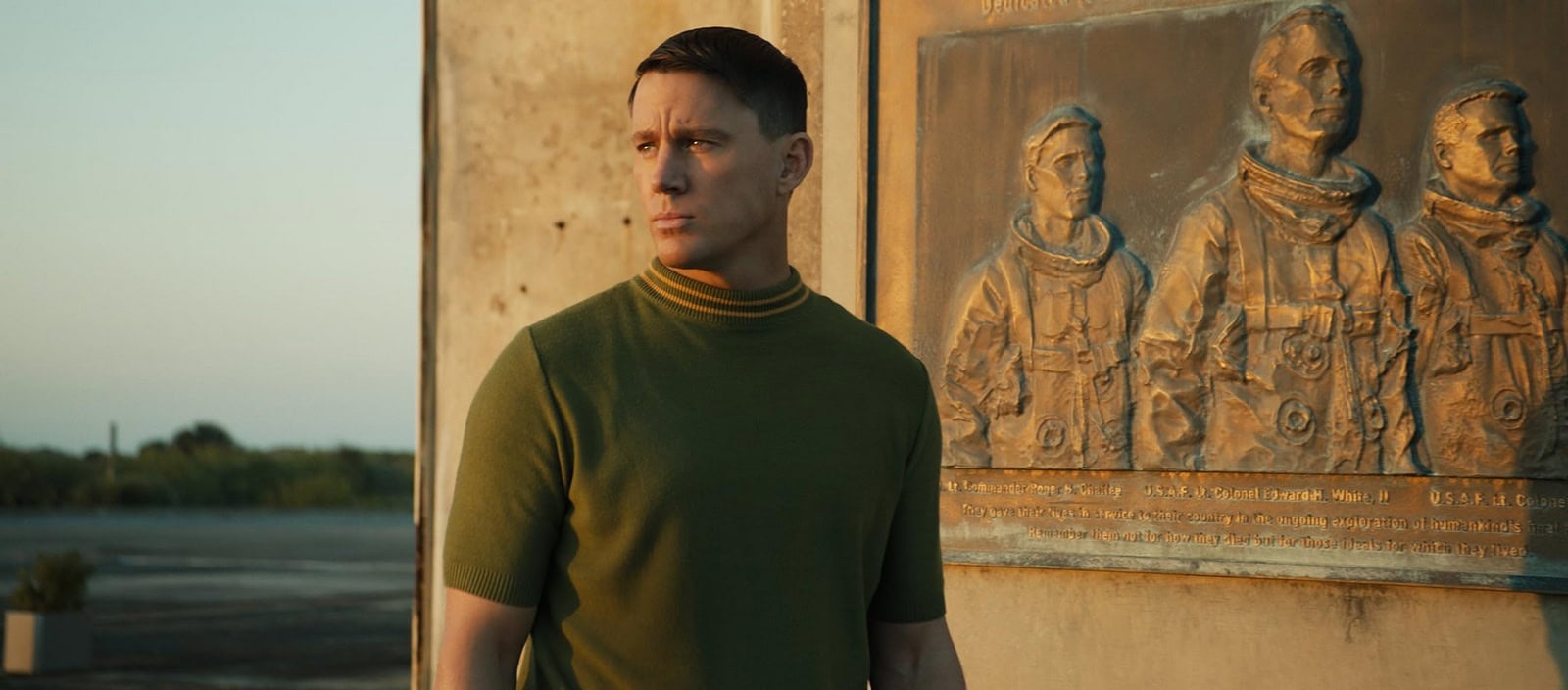The space race between the US and the USSR is one of the most interesting pages in human history, full of intrigue and drama. In a separate article, we talked about some films that focus on these events. The creators of Fly Me to the Moon also chose the space race as a setting, but decided to approach it from an unusual angle.
Instead of historical facts, the script focuses on the love between Scarlett Johansson and Channing Tatum, and all the other dramas inside NASA are in the background. This approach may resonate with the audience because the romance is sincere, but it's better not to expect any revelations from the movie, and the serious moments spoil it considerably.
| Title | Fly Me to the Moon |
| Genre | satire, comedy |
| Director | Greg Berlanti |
| Starring | Scarlett Johansson, Channing Tatum, Woody Harrelson, Jim Resch, Ray Romano, Joe Cross and others |
| Studios | Apple Studios, These Pictures, Columbia Pictures |
| Timing | 2 hours 12 minutes |
| Year | 2024 |
| Website | IMDb |
NASA is actively working on preparations for the Apollo 11 space flight, which is supposed to bring people to the moon for the first time in human history. However, ordinary Americans do not seem to care about this event, and support for the space program in the United States is minimal. NASA Director Cole Davis (Channing Tatum) (this is a fictional character, not a real NASA administrator - ed. note) doesn't particularly mind the current state of affairs, because he knows his job and loves space without any unnecessary embellishments. But the management is not satisfied, so they hire a marketing specialist, Kelly Jones (Scarlett Johansson). It is she who must turn the Apollo 11 flight into one of the main events in US history. And even if Davis does not approve of Jones's methods, feelings gradually flare up between them.
[caption id="attachment_225995" align="aligncenter" width="1600"] Still from the movie Fly Me to the Moon[/caption]
Still from the movie Fly Me to the Moon[/caption]
The creators of Fly Me to the Moon set themselves ambitious goals. After all, the structure of the script tries to combine four major components at once, each of which is worthy of a separate adaptation. The movie simultaneously tries to show a touching love story, a satire on US policy towards the space program, a pseudo-historical speculation about "fake" footage of the moon landing, and a relatively serious drama about the competition between America and the USSR.
From the above description, you can already guess that combining everything in a single work is an almost impossible task. Director Greg Berlanti has previously made only romantic comedies with elements of drama. The complex nuances associated with the space race cannot be summed up in some kind of "drama elements." They need full disclosure, competent contexts, and adequate presentation. Take Me to the Moon has serious problems with all this.
[caption id="attachment_225989" align="aligncenter" width="1600"] Still from the movie Fly Me to the Moon[/caption]
Still from the movie Fly Me to the Moon[/caption]
However, we can immediately say that the romantic line in the movie is a success. There are no miracles here, but the director's background contributes to this. On a fundamental level, Davis and Jones look at the world differently, but gradually come to an understanding. It would seem that this is a classic development for a good romantic movie. But the setting and surroundings bring enough freshness to the familiar formula to make the movie interesting to watch even for people who don't particularly like love stories. And the tandem of Johansson and Tatum turned out to be successful, the actors know their stuff.
The movie's satirical elements are also relatively tolerable. Yes, they lack frankness and provocativeness, which makes many jokes and situations feel toothless. But the jokes here are funny and entertaining, and they also immerse you in the cultural context of the United States in the 1960s.
[caption id="attachment_225991" align="aligncenter" width="1600"] Still from the movie Fly Me to the Moon[/caption]
Still from the movie Fly Me to the Moon[/caption]
However, when the movie tries to become at least a little more serious, its charm begins to disappear. The film crew seemed to have no idea how to evoke at least a hint of "reflection" in the audience, so from time to time they throw out pretentious scenes with "loud" speeches that in fact do not contain anything important. The running time of more than two hours seems artificially long because of such "serious" moments.
The film lacks a clear focus, and this is doubly disappointing because at times it seems to be pulling itself together and starting to tell a more concrete and coherent story. "A romantic comedy set in a space race setting" might not sound as impressive without elements of satire, politics, and social acuity. But if the screenwriters and director do not have the skills to do all of the above at at least a minimally decent level, the result will only be off-putting.
[caption id="attachment_225993" align="aligncenter" width="1600"] Still from the movie Fly Me to the Moon[/caption]
Still from the movie Fly Me to the Moon[/caption]
However, despite all this, the combination of historical realities and pure fantasy with a tangible dominance of romance in the movie still cannot be called outright bad. As an original work, Fly Me to the Moon is not bad, but it is constantly injected with elements that are completely unnecessary. If you can turn a blind eye to them and filter out the good scenes from the bad, you'll get a decent movie. If you don't plan to do this, it's best to avoid it.
[caption id="attachment_225987" align="aligncenter" width="1600"] Still from the movie Fly Me to the Moon[/caption]
Still from the movie Fly Me to the Moon[/caption]
P.S. Fly Me to the Moon – is a song written by Bart Howard in 1954. Frank Sinatra's performance of Fly Me to the Moon in 1964 became closely associated with the Apollo space program. The song was played on the Sony TC-50 portable cassette player during the Apollo 10 mission around the Moon, as well as during the Apollo 11 mission before the first lunar landing. The song's association with the Apollo program continued into the 21st century when Diane Kroll sang it at the 40th anniversary of the mission and at the memorial service for Apollo 11 commander Neil Armstrong in 2012.

